Social proof is a powerful concept in marketing. It's the idea that as consumers, we are influenced by what others do, especially people we admire. If you have ever seen a website mention its number of users, a review from a customer, or company logos, you've witnessed social proof marketing. Lets go over some examples in detail, why social proof works and how you can add social proof to your website.
Social proof examples
Have you ever walked down the street and seen a big crowd of people around a shop? A lot of people will stop and ask people what they are there for. They might even join the queue regardless of whether they know what they are in line for. If people are spending a lot of their time waiting for something, we think, "it must be good!"
There's a bakery in Edinburgh which uses social proof to powerful effect. They only serve a small number of pastries during the day and this scarcity factor means people have to queue up to get their fancy baked goods. The queue of people that forms is free advertising! It signals to every passing pedestrian or car that something cool is happening here. Bare in mind, this is a queue of 50 people on a Monday morning at 8:30 in a mid-sized city. It's not on a busy street that would otherwise create lots of potential customers.

As humans, we are programmed to seek out tribes of other people and subconsciously, most of us like to fit in with a group. We look to other people to signal to us what we should like e.g. a crowd of people in front of a bakery tells us it must be a good bakery.
You can copy this bakery's approach on your website by saying how many users you have. Here's the 4dayweek job board showing how many people have signed up to their emails:
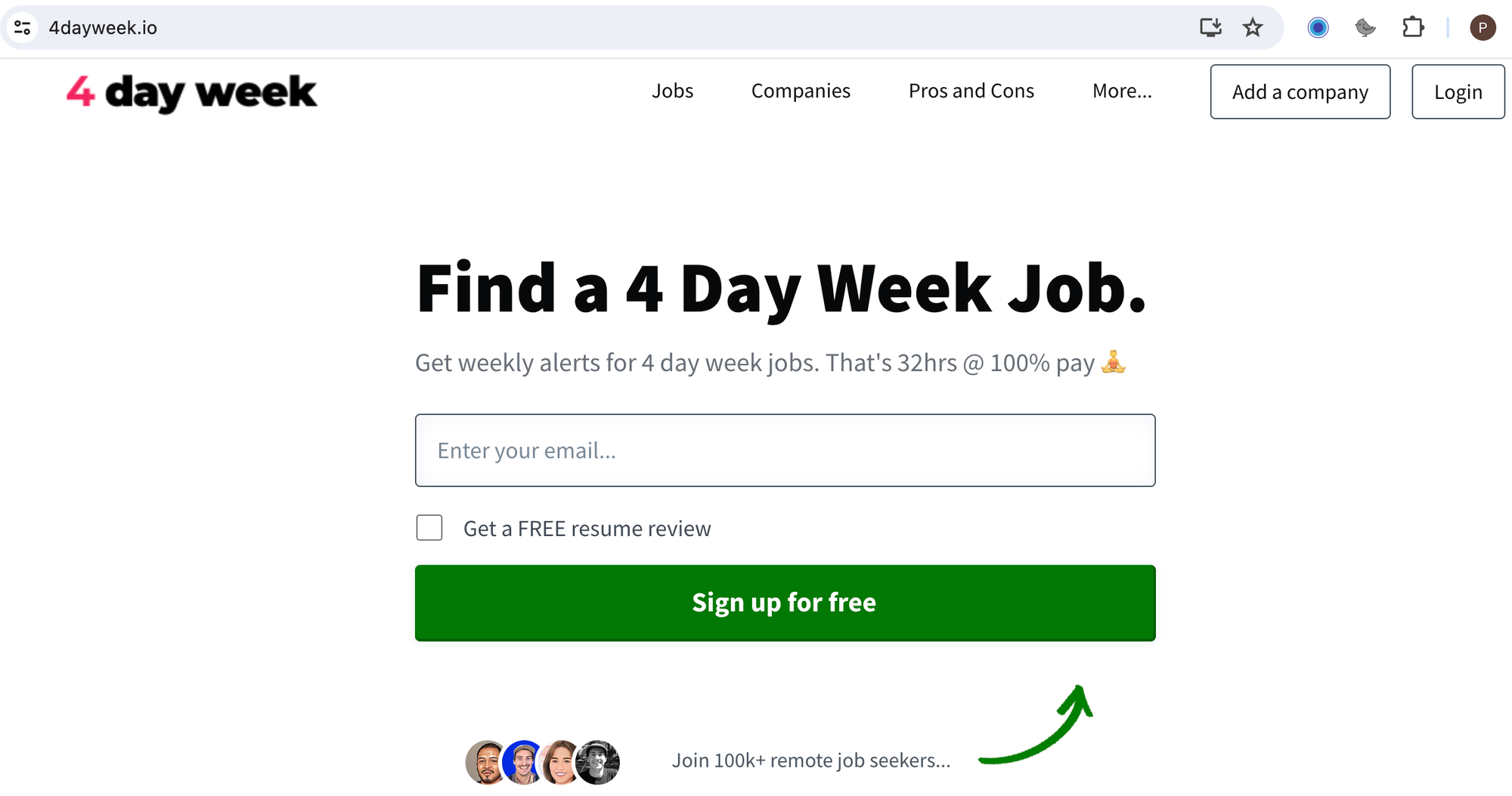
Social proof from testimonials
If your product has a review from a happy user, that will go a long way in convincing other people it's good. It's the reason that celebrities like Taylor Swift can cause a dress to sell out online. After she wore a $100 green dress by a Scottish designer, the dress sold out in a day. If someone we look up to recommends something, we instinctively trust them and want the product.

The testimonial doesn't have to be a celebrity though. In more niche areas there are lots of people who aren't household names but are still very influential. For instance, when I needed to choose podcast hosting software I was influenced to buy a subscription to Transistor because the IndieHackers podcast was using their software. If I see a successful entrepreneur use a particular type of podcast microphone, I'm a lot more likely to buy that than a random microphone with no endorsement.
I collect testimonials from my newsletter subscribers to encourage more people to check out High Signal. Here's a tip for collecting testimonials: instead of asking someone to write one from scratch, just ask to use their real feedback they give you as a review. That way it's less effort for them and it reads more authentically.
Social proof by association
You can also gain trust for your product by associating yourself with other companies that have respect. That way, some of their good reputation is brushed off on to you by association. Here's an example where the online video editing tool Veed has said "76% of Fortune 500 companies trust VEED". The company logos Veed has used included big, trusted brands like Google, UBS, BBC and Netflix. The implication is that because all of these large organisations use Veed, you should to.

Social proof from media mentions
You can also gain credibility for your business by mentioning that you have been covered by the media.
LeaveMeAlone use logos from press publications like LifeHacker to show they have credibility. The implication is that their app must be legitimate or newsworthy if a large news website has written about them.
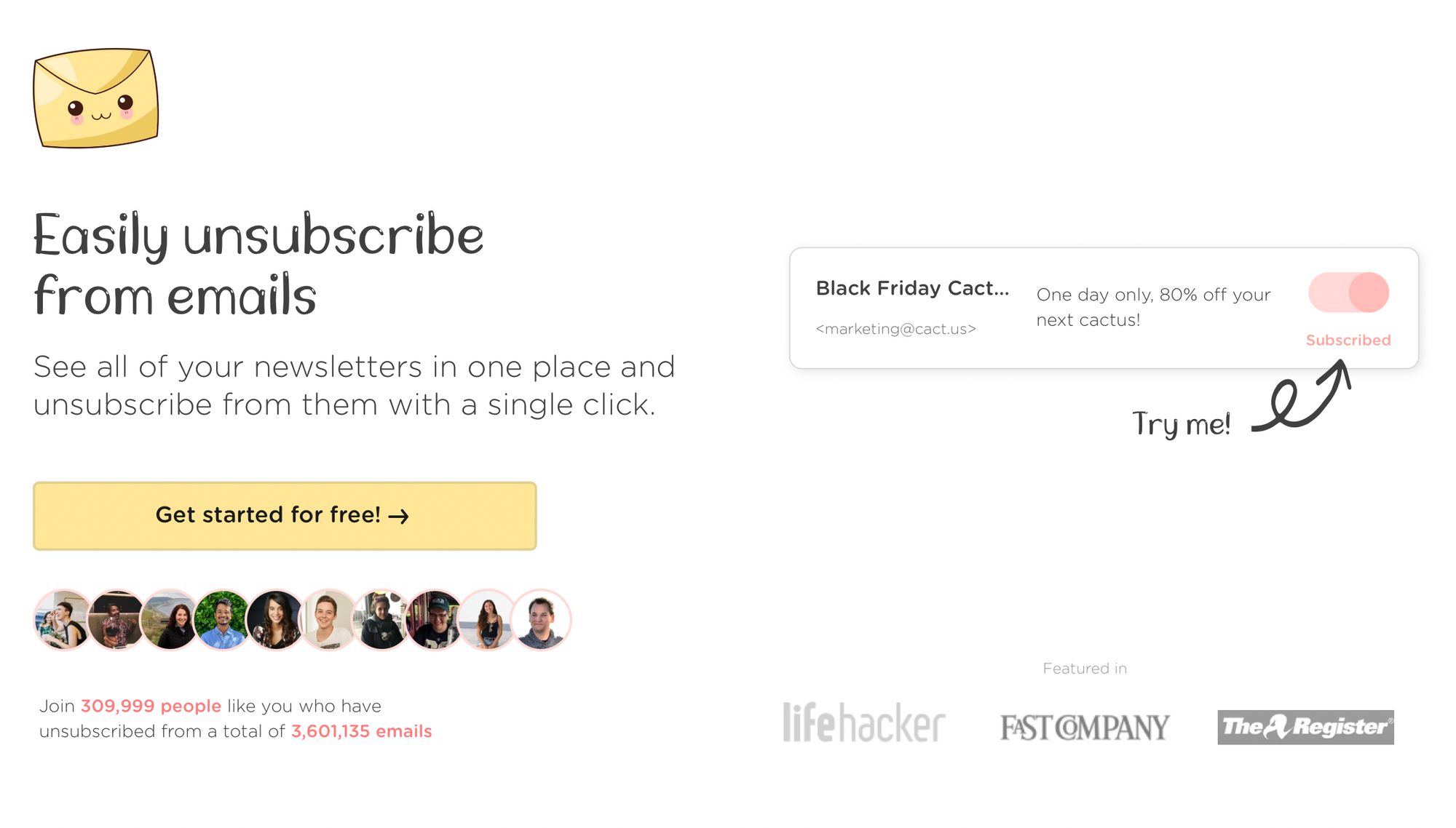
So if you get press coverage, you should definitely mention this on your website. You can also do this if you have been featured on a noteworthy podcast like My First Million, for example. Alex West mentions a comment from Sam Parr right at the top of his cold email sales website.
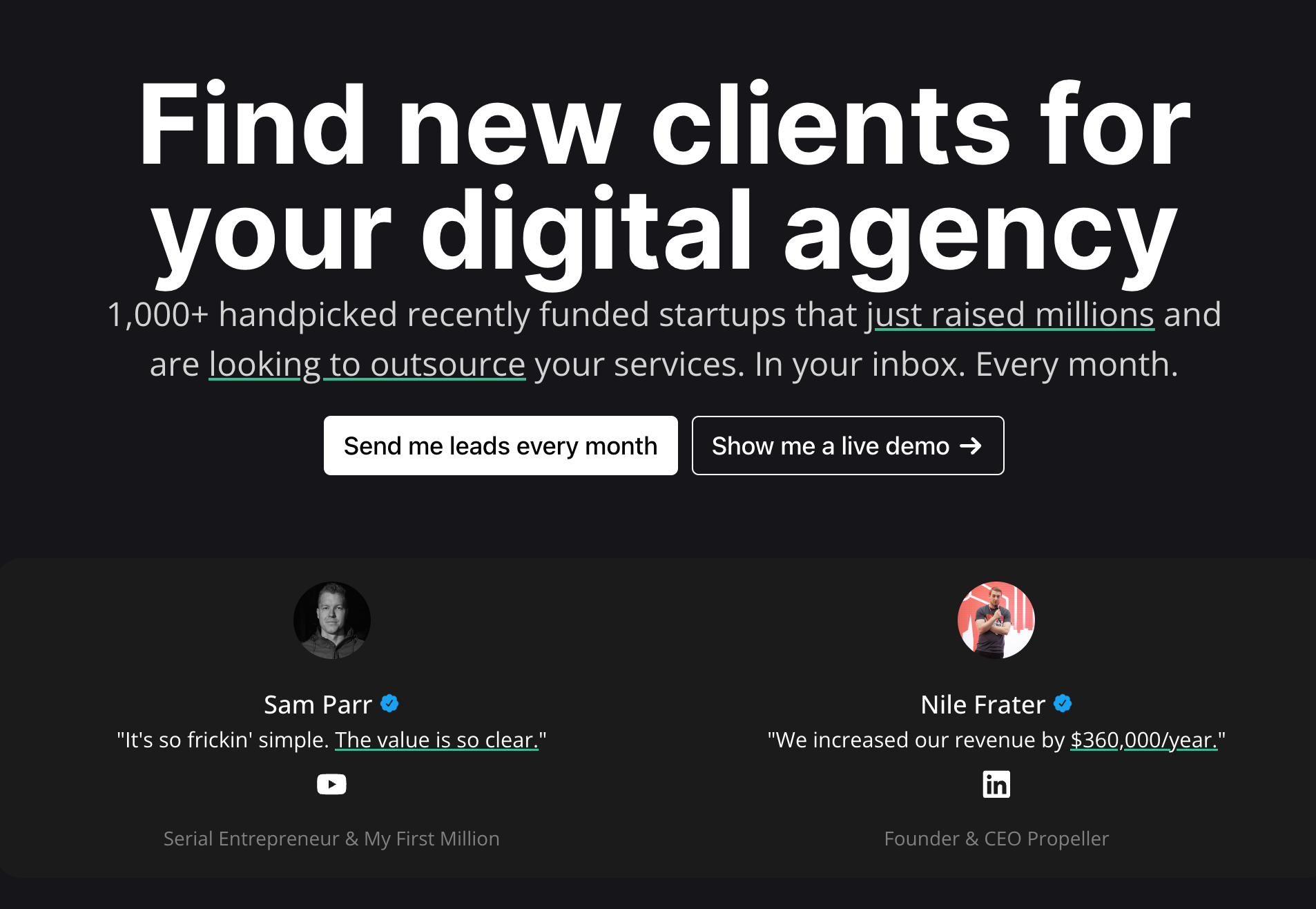
Review websites
If you run a SaaS, it's a good idea to share your reviews or ratings on websites like TrustPilot, G2 or Capterra. This is particularly true if your product costs a lot of money and requires a big time investment. Buyers will want to know that other people in their industry trust your company.
It's also worthwhile if you have a cheaper product as well, of course. Thankbox, a B2C e-card business, displays their high rating from TrustPilot to encourage trust in their product:
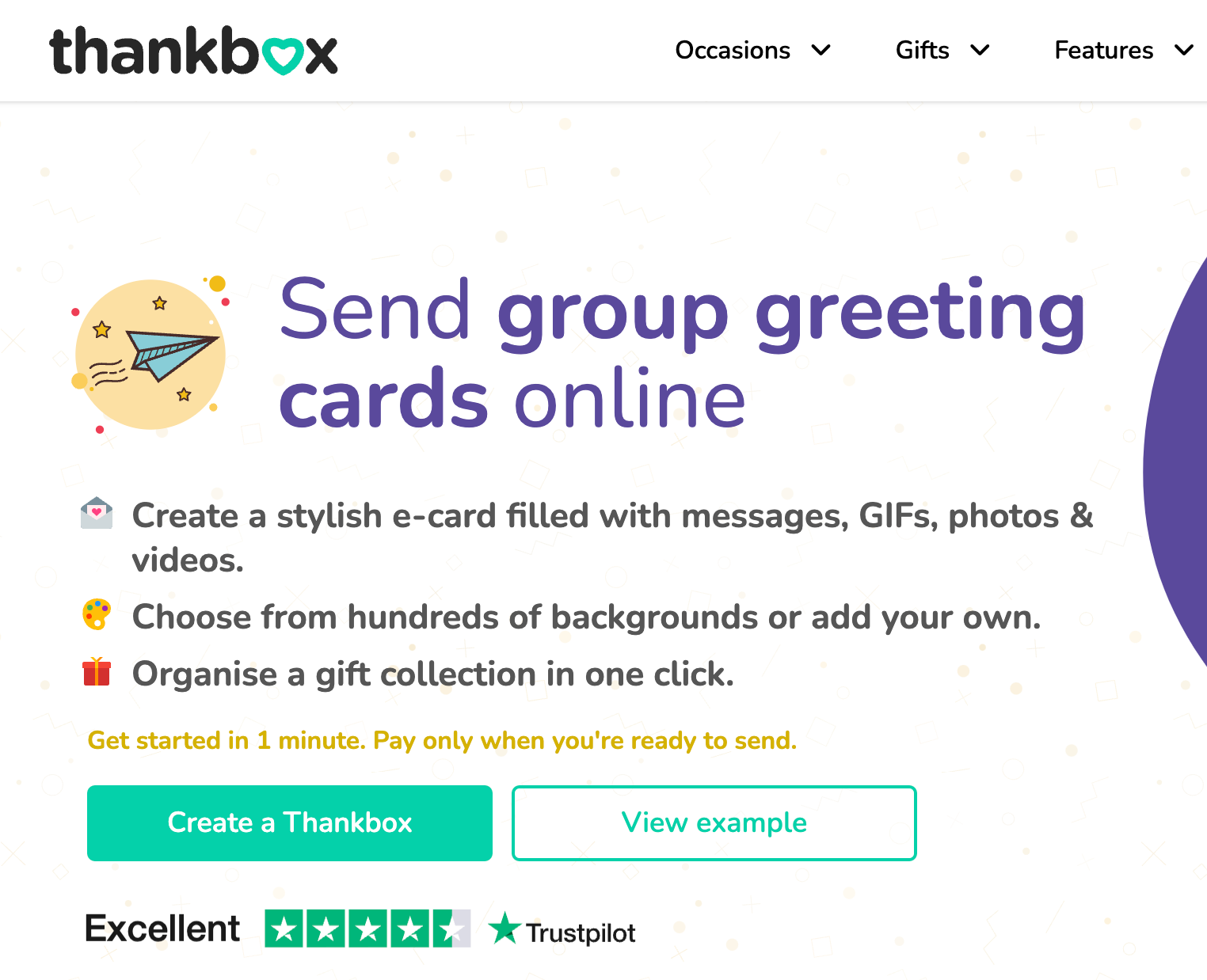
User generated content from social media
If you have happy customers talking about your product on social media, it's a no-brainer to add those to your website. The Bannerbear homepage features tweets from users praising the product. These sorts of review are powerful because they are showing what people genuinely think of Bannerbear.
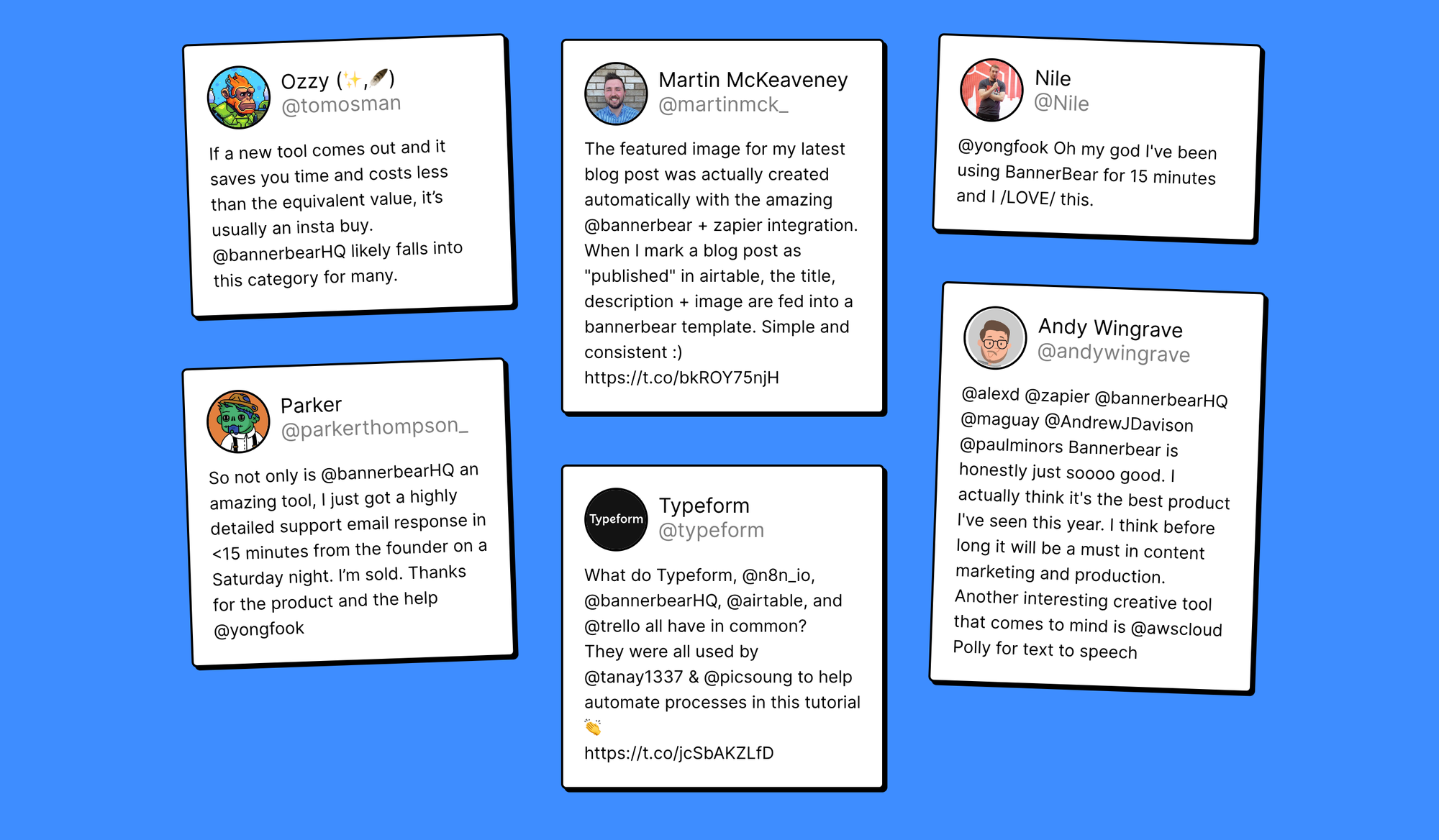
Video testimonials for social proof
The maid service SaaS ZenMaid has a video testimonial on their home page. It's from an expert on maid businesses talking about why companies need a software solution like ZenMaid.
While text testimonials are useful, videos are the holy grail. Most people won't take the time out of their day to record a video or might be camera-shy so it says a lot about your business if someone will leave you a video testimonial.
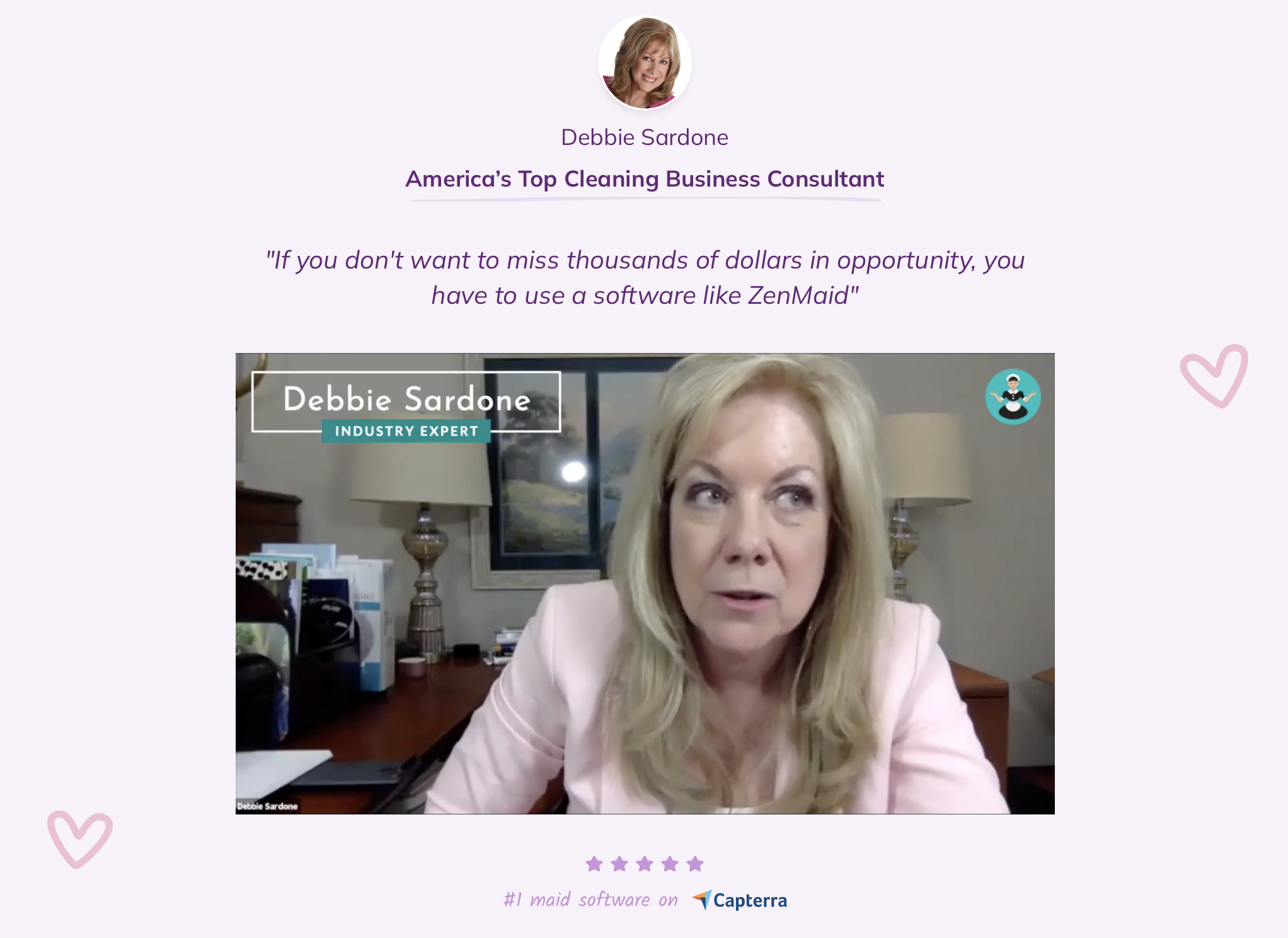
You can add a video testimonial to your website from a happy customer or industry expert by asking them to send you a video and then hosting it on YouTube or on a testimonial tool like Senja.
Conclusion
You don't need to have an Instagram-worthy bakery or a celebrity endorsement to benefit from social proof. The easiest way is by showing user numbers. You don't have to ask permission for this - you can just count how many people use your product. As soon as you get a decent number of users, it's good to add this as social proof.
If anyone responds to your product in a positive way on social media or by email, you should definitely add this to your website. You can embed these to show people that you have something that is high quality. If that person is a respected voice in your industry, that's even better.
I'd recommend putting any social proof above the fold (i.e. at the top of your website, before people have to scroll). That way, the visitor immediately has a positive reaction to your product or service.
Reviews and testimonials are powerful because they encourage other people to try your product. Likewise, websites with no reviews or ratings will look much worse in comparison.
Harder forms of social proof to get are things like press mentions or logos from top companies that use your product. Of course, the harder they are to achieve, the more powerful an impact they have. If you have a job board and your customers include big companies like Stripe, it makes sense to ask to use the Stripe logo. This will make you look like a serious business and encourage other companies to use your job board.
Whichever social proof option you choose to use, anything that takes advantage of our tendency to act based on what others do will help you.
Want to find out what 20 indie companies sold for? Check out the free report!



